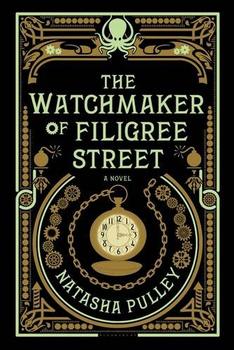Reading Guide Questions

Please be aware that this discussion guide will contain spoilers!
- The novel switches between years and moments in history from London in the 1880s to Japan in the 1870s. What effect does this shift in location and time have on the reader? To what extent does it produce a globalist vision of history?
- Nationalism takes several forms in this novel, yet these forms are similar in many ways. Consider the different instances of nationalism, particularly those of the Irish and of the Japanese. How do these views differ? Does the novel offer sympathy or skepticism for their projects?
- "All the same, [Thaniel] had a feeling that life should not have been about ten candles and two baths a week." Discuss Thaniel's life before and after his meeting with Mori. What has changed, if anything? Argue either for or against Thaniel's transformation and development as a character with this passage and its articulation of Thaniel's somber prospects in mind.
- "The gold [of the watch] caught the ember-light and shone the colour of a human voice": Synesthesia is a condition whereby stimulation of one sensory pathway results in stimulation of another unrelated pathway. Thaniel frequently exhibits characteristics of a synesthete. In what ways do such characteristics provide context for Thaniel's fraught relationship with music, and what do they say about Thaniel himself as a character?
- Consider Grace's character. What role do women play in the university, and specifically within scientific realms? Would you define her as a feminist? If so, define this kind of feminism and consider how it differs from that of Bertha and the other suffragettes.
- At the meeting of the suffragettes at the women's college, Bertha treats Matsumoto with disdain and unconcealed racism. Consider the various prejudices in this novel, particularly those of race, gender, sexual orientation, and class. How does this novel present these prejudices in a historical setting, and how does its departure from these prejudices surprise the reader?
- How are the characters of the novel both involved in and yet removed from the national politics of England, Ireland, and Japan? What is the nature of their distance from such politics? How are human relationships and national political issues prioritized in the text?
- "Everybody, professors and students and Proctors the same, knew that if the sign said 'do not walk on the grass', one hopped. Anybody who didn't had failed to understand what Oxford was." In what ways is the university oppressive and conservative, and in what ways, if any, is it a site of innovation? Discuss the role of the university in this novel, and compare it with the modern notion of the university.
- "'Your science can save a man's life, but imagination makes it worth living.'" Discuss this quotation from Matsumoto with regards to the three main characters: Thaniel, Mori, and Grace. In what ways are they imaginative or scientific? Are these characteristics mutually exclusive, or do they overlap and suggest another way of making life "worth living"?
- Consider Mori's ability to remember and therefore predict the future, yet his inability to foresee matters of chance, such as the fall of a coin. Is there an inherent tension in this novel between fate
and chance? What purpose do such limitations on Mori's ability serve in the context of the novel?
- Friendships take many forms in this novel, from work interactions to platonic friendships to romantic relationships. How do these different forms of relationships influence the plot, and what does that suggest about the value and importance of them in human life?
- Grace accuses Thaniel of falling prey to Mori's machinations of their lives in saying, "'You are such good clockwork that you don't know.'" Given this quotation, in what ways is Thaniel a follower? Does he in fact break the rules as much as follow them? How does the identity of an outsider differ from the identity of a follower, or "good clockwork"?
- Consider Grace's distrust of Mori that escalates in her desire to frame Yuki as the Clan na Gael bomber, simply to remove Mori from her life as well as Thaniel's. Is this action selfish, heroic, or something else altogether? Does it revise your opinion of Grace, either for the better or for the worse? Why?
- Does the relationship between Mori and Grace resolve? In what ways is it left ambiguous or decided? What do you envision for their futures, and where will Thaniel fit in each future?
Suggested reading:
Susanna Clarke, Jonathan Strange and Mr. Norrell;
Virginia Woolf, A Room of One's Own;
Eleanor Catton, The Luminaries;
David Mitchell, The Thousand Autumns of Jacob de Zoet;
Diane Setterfield, The Thirteenth Tale;
Sarah Waters, Tipping the Velvet;
Thomas Hardy, Jude the Obscure;
Erin Morgenstern, The Night Circus;
Robin Hobb, Fool's Errand;
Neil Gaiman, Neverwhere;
Yasunari Kawabata, Snow Country.
Unless otherwise stated, this discussion guide is reprinted with the permission of Bloomsbury USA.
Any page references refer to a USA edition of the book, usually the trade paperback version, and may vary in other editions.

 Book Reviewed by:
Book Reviewed by:





